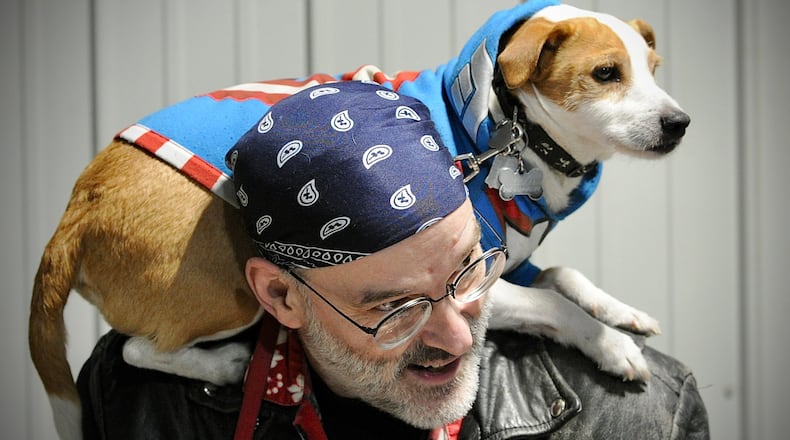“Every animal exhibits a different stress response to fireworks,” said Kara Hamby, ARC spokeswoman. “Many animals become scared and confused and will try to escape the sounds [or] situation, which is why we advise against taking them to fireworks displays, where there’s a greater chance they could escape and become lost.”
Pets may be burned or ingest toxic materials used to make fireworks, including sparklers, so those should not be used around pets. Many experts recommend keeping pets at home in a secure and quiet space during high fireworks usage. Music, toys and other distractions may help reduce the stress on pets.
“Owners know their pet best and should talk to their veterinarian about how to properly handle their pets’ stress and anxiety,” Hamby said. “Whether that looks like toys and treats as a distraction, playing relaxing music to help drown out the sounds of fireworks or giving medication as advised by their vet, there are options to help reduce pets’ stress.”
Pet owners should secure their yards, so that if fireworks unexpectedly go off nearby while pets are outside, they’re unlikely to get loose.
Hamby said ARC staff tend to see an increase in the number of animals reported missing and the number of strays following the Fourth of July. Pets should wear identification, such as dog tags on a collar, and ARC also recommends that pets be microchipped to help in reunification in case pets do go missing.
In addition to mitigating the stress on pets during fireworks shows, owners should be sure to keep human food and alcohol out of reach from pets while at cookouts, fireworks shows and other festivities.
Resources for reconnecting with lost pets can be found on the ARC’s website at http://mcanimals.org/lost-and-found/.
About the Author

